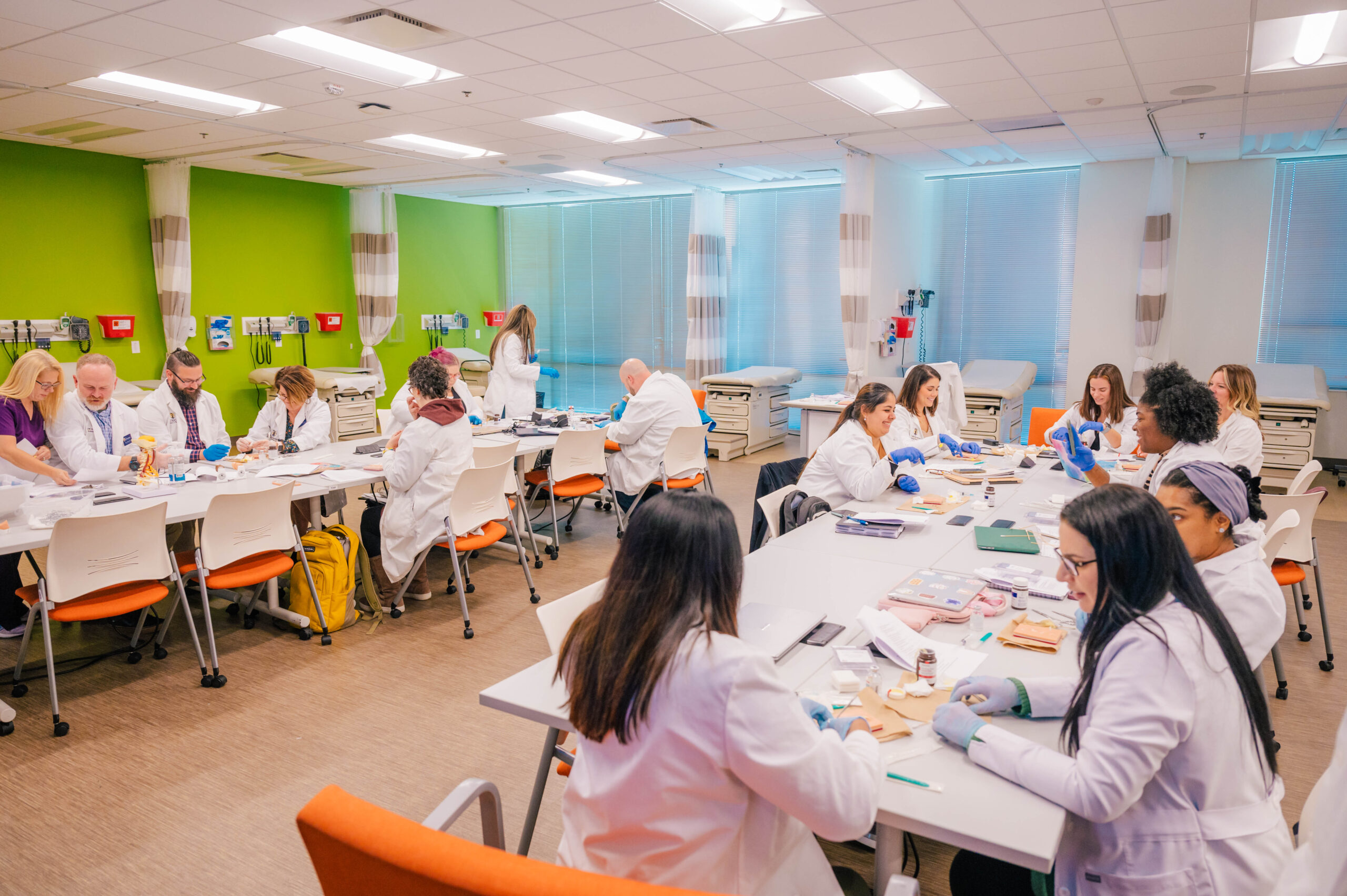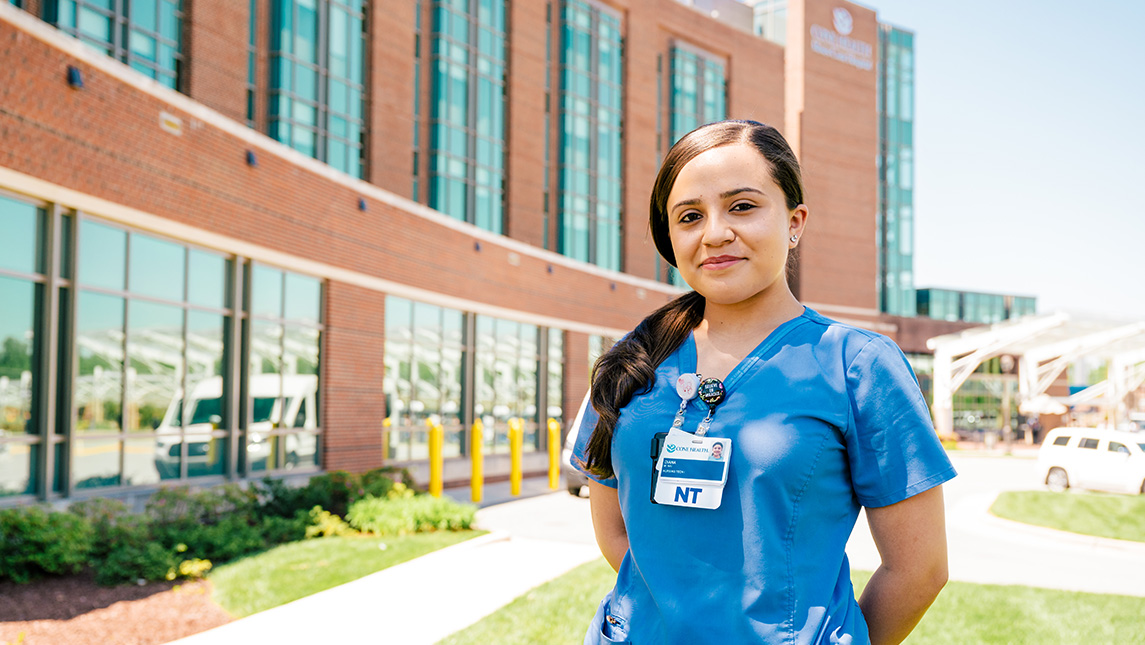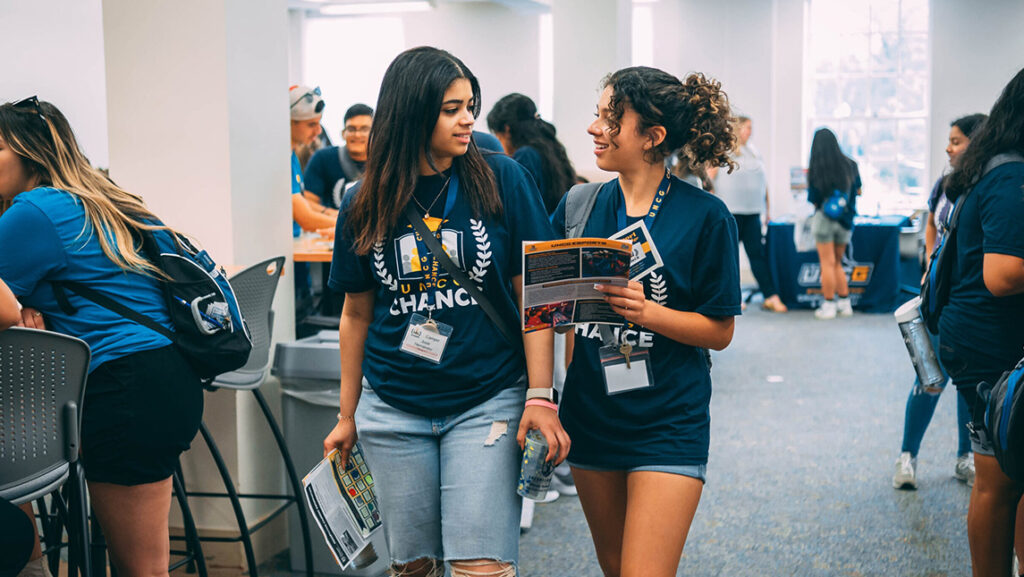Think medical school is too competitive for you? Think being a dentist or doctor is the only way to make money in healthcare? Think a biology major is the only path to a career in patient care? UNC Greensboro says think again.
At UNCG, health careers satisfying a range of student interests and skills are within reach. UNCG’s pre-medical track is turning out medical school acceptance rates higher than the national average thanks to faculty guidance and access to research. Students with specialized interests are finding allied health majors like kinesiology that match their passions, and exploratory majors like human health sciences demystify the healthcare industry and shape students into compassionate patient advocates.
Changing Healthcare Needs
According to North Carolina’s Office of State Budget and Management, 20% of North Carolinians will be 65 years and older by the end of 2024. As our population ages, North Carolina state leaders and higher education institutions must prepare for expanded healthcare. Furthermore, healthcare employers are reevaluating how they staff these expanded services, prioritizing candidates that can better connect with patients to encourage healthy living and help navigate the complicated healthcare system.
Medical schools want more than just high GPAs. They want diverse students with hands-on experience that patients will trust. And beyond doctors, there are a range of positions that hospitals, communities, and senior living facilities must fill to serve our aging population.
Launching Health Professionals
UNCG is uniquely positioned to provide the skilled graduates that healthcare employers in our state seek. Its diverse student body and long-standing commitment to service careers like nursing make UNCG a perfect launch pad for healthcare careers. Furthermore, the University’s size gives students a leg up when it comes to research opportunities and meaningful mentorship with faculty.
UNCG provides students with guidance for the complicated and competitive healthcare industry and options for career paths that suit individual talents and passions. Consider the following programs where students can find their fit at UNCG and prep for successful careers.
Building MDs at the G: Preprofessional Health Science Tracks
UNCG may not be the first school that pops to mind when considering preparation for medical school, but the track record of our graduates is undeniable.
In 2023, medical school acceptance rates for UNCG graduates were higher than the national average.
Currently, UNCG has 3,097 students in health-related preprofessional programs. Half are on the pre-medical track, with rigorous academic coursework in biology and chemistry prerequisites. Last year, UNCG graduates’ acceptance rate for medical school was 53%, which was higher than the national average at 41%. Acceptance rates at physical therapy and physician assistant schools were also higher than the national average for UNCG graduates.
What makes these acceptance rates particularly notable is that, unlike other schools of its size, UNCG doesn’t prescreen or require a GPA for acceptance in their preprofessional programs. “Our philosophy is everybody has a chance,” says Robin Maxwell, director of the post-baccalaureate pre-medical program. “If they make the decision to commit themselves to this goal, we’re going to help them reach it.”
Advising is particularly important to keeping students on preprofessional tracks. Determining courses of study that align with interests for maximum academic performance, walking students through the application process, and giving them opportunities for research and hands-on experience is also key. Maxwell believes that support like this is difficult for students to find in larger universities.
“Our size makes us different; our diversity makes us different; and because we care about the student, we’re in the trenches with them,” Maxwell explains. “That one-on-one relationship with someone who cares about you is so important, particularly if you’re a first-generation college student and no one in your family has been to college, much less medical school.”

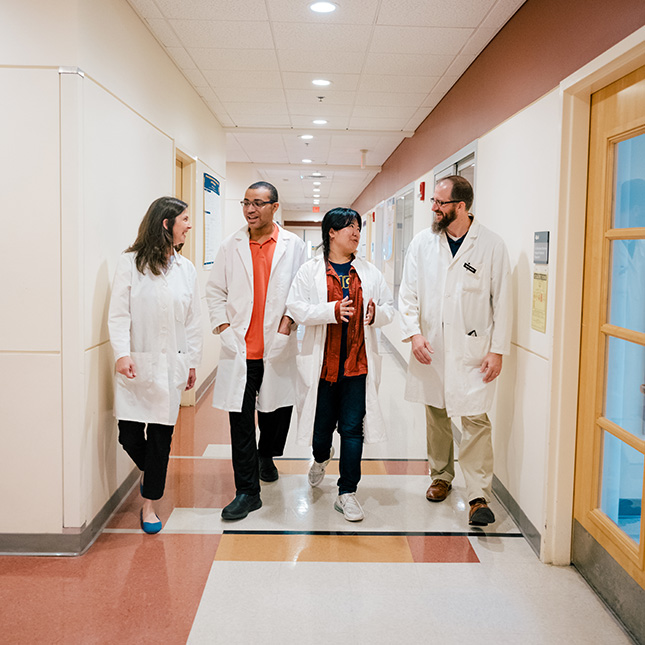
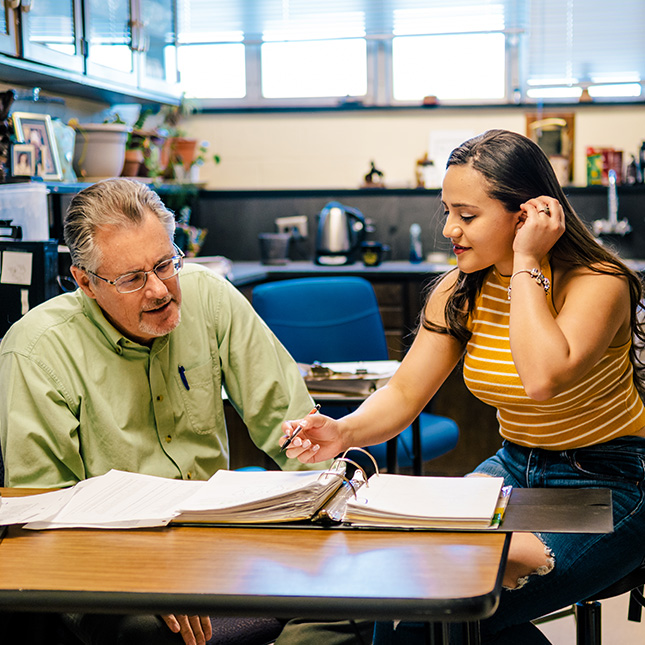
A Pipeline to the Front Lines: Nursing
UNCG has long been known for its School of Nursing. Undergraduates studying for their bachelor of science in nursing (BSN) or RN (registered nurse) to BSN, as well as graduate students, benefit from expert faculty and state-of-the-art technology. Traditional and non-traditional students appreciate innovative programs like the Family Nurse Practitioner (FNP) and the Adult Gerontology Primary Care Nurse Practitioner (AGPCNP) concentrations, or the Veterans Access Program (VAP).
Hands-on experience and community service, like volunteering in Minerva’s Mobile Health Unit, teaches nursing students to meet patients where they are.
“It’s important to get students out of their comfort zone,” says Audrey Snyder, associate dean for community engagement and academic partnerships at the School of Nursing. “They have to understand the contextual challenges where their patients live.”
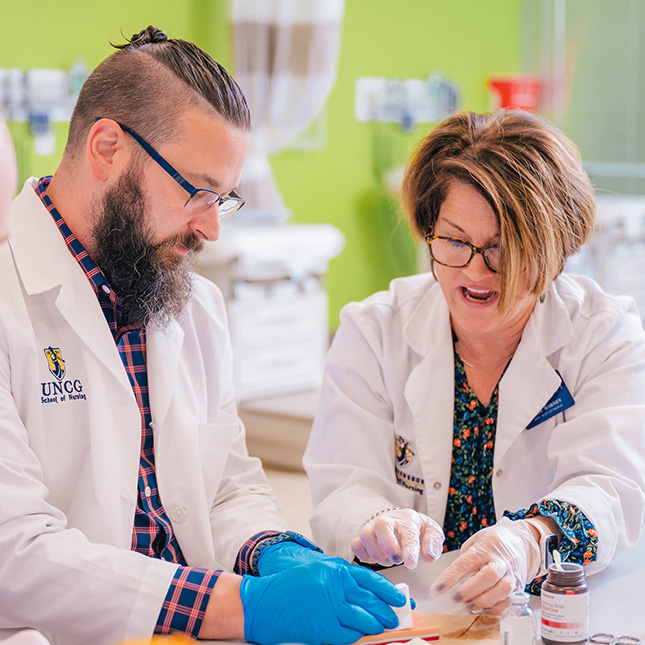
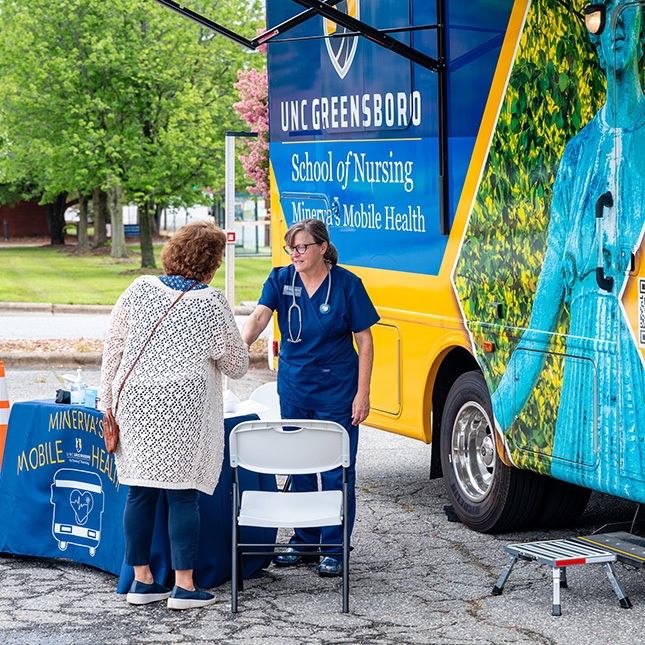
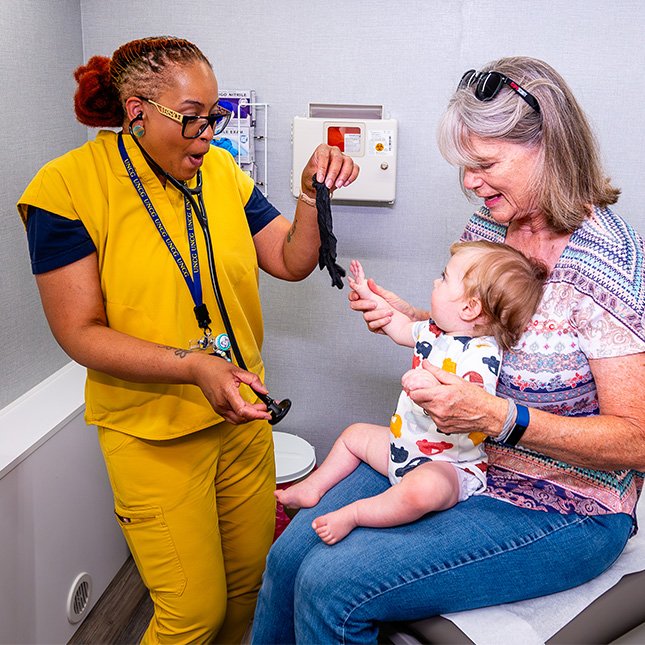
Can I Get a Referral: Specialized Health Programs
Modern healthcare requires skilled hands other than those of doctors and nurses alone. Speech pathologists, psychologists, physical therapists, occupational therapists, social workers – these are all health-related occupations that UNCG prepares students for.
Even in specialized programs, faculty encourage students to approach their fields in a holistic way so they can learn to work in teams to care for the whole patient, rather than treating a specific diagnosis. Students with specialized health degrees are ready for the workforce upon graduation, but many go on to graduate school or use their studies to apply to medical school. Kinesiology is one of many in-demand specialized health degrees offered at UNCG.
“UNCG’s kinesiology program is ranked number one in North Carolina according to Universities.com.”
Adam Berg
“This is due to excellence in teaching and research,” says Adam Berg, director of kinesiology undergraduate studies. “Jackie Maher, our undergraduate research liaison, helps faculty researchers recruit solid undergraduate assistants and helps undergraduates identify labs that suit their interests and career goals.”
With a mission to promote wellness through physical activity throughout the human lifespan, Berg says that kinesiology majors provide solutions for “aging in an ever more sedentary society” as physical therapists, recreational directors, sports coaches, or exercise physiologists.
Nutrition is another health sciences major that is turning out caring professionals. Healthcare employers are also looking for majors like gerontology, genetic counseling, therapeutic recreation, speech pathology and audiology, human development and family studies, social work, and even peace and conflict studies. Professionals in these fields support systemic change in the healthcare industry.
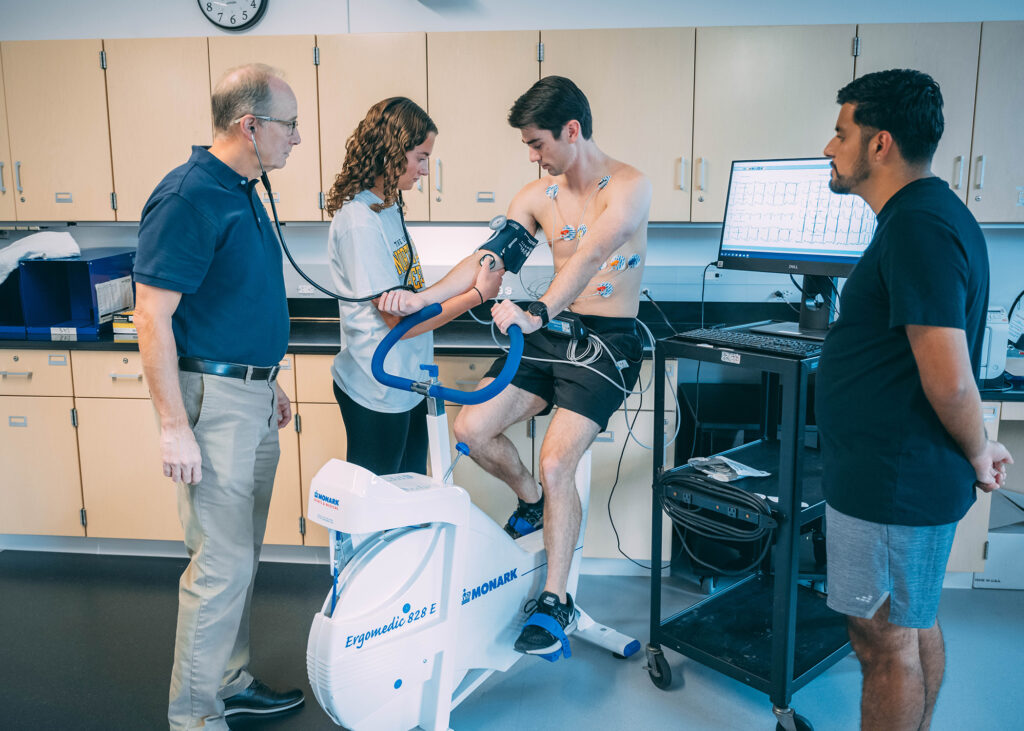
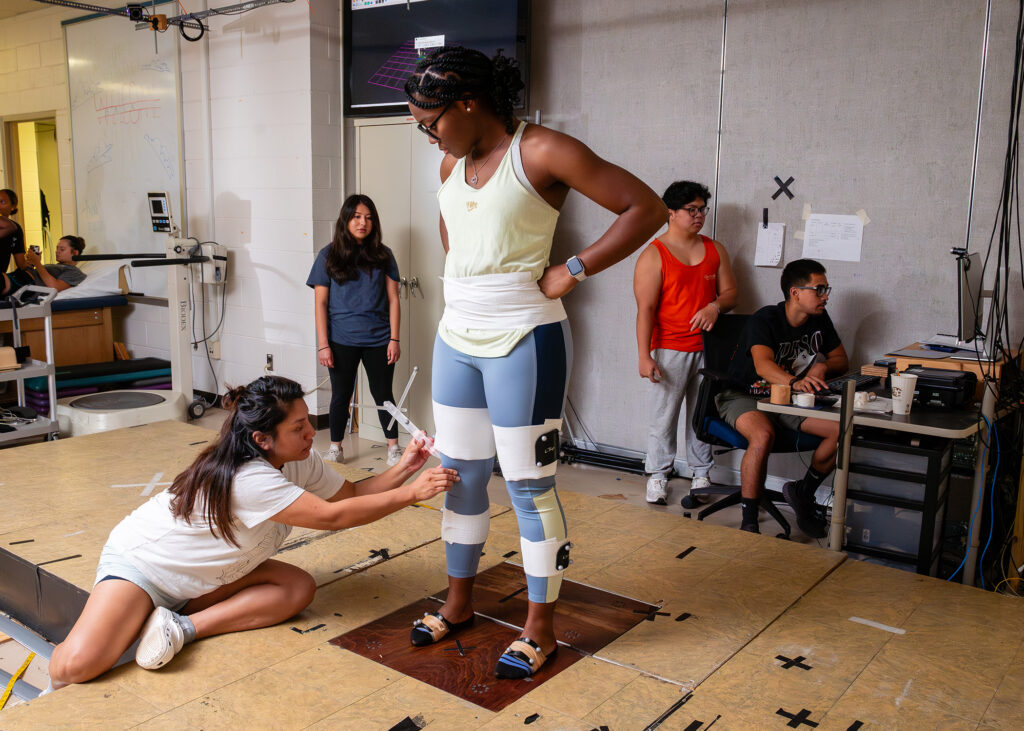
Exploring Holistic Care: Human Health Sciences
For students who are interested in a broader understanding of the healthcare industry, the new human health sciences program is a perfect fit. It is the only major of its kind offered in the Piedmont Triad. While some combine this degree with the rigor of a preprofessional track, others use it to explore the healthcare system in general to prepare for administrative or support roles in medical facilities and businesses.
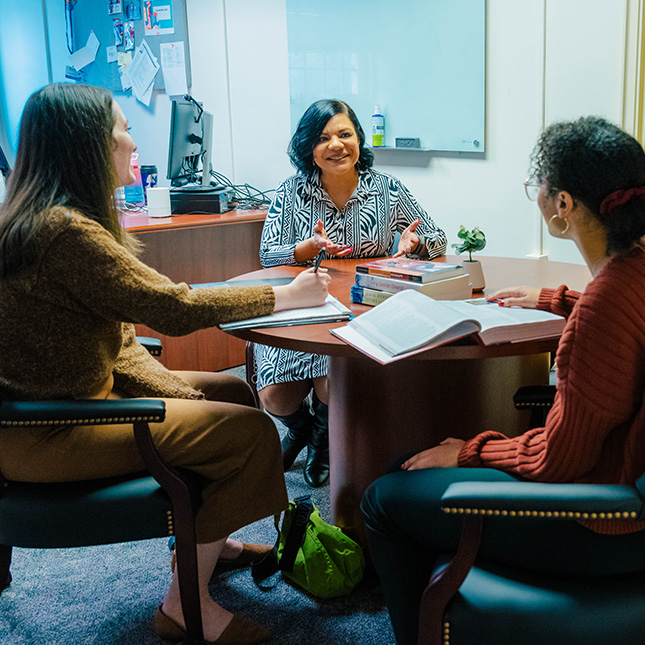
“Our degree is interprofessional. Students take classes in the other health science areas, including nutrition, exercise science, social work, human development, and family studies, speech, peace and conflict studies,” explains Dr. Jeannette Wade, director of the human health science program. “We curate courses to give a little taste of what all the other health professionals do. It helps students learn to work as a team to treat patients.”
“Interprofessional education and the holistic understanding of healthcare is the wave of the future.”
Dr. Jeannette Wade
In the “Careers in Human Health Sciences” course, the instructor brings in guest speakers like a massage therapist, pharmaceutical sales rep, psychologist and specialized doctors and nurses. “If we don’t learn about specialties like this, we don’t know about holistic care,” Wade explains. “This exposure helps our students make more informed career choices upon graduating and ultimately serve patients better.”
Story by Becky Deakins, University Communications.
Photography by Sean Norona and David Lee Row, University Communications.
